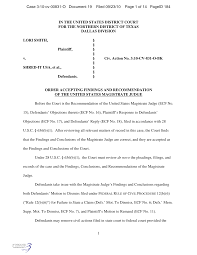When you hear the term “slander,” what comes to mind? For many, it conjures thoughts of libelous accusations made in the heat of the moment, followed by scandal and even legal battles. But could it ever lead to incarceration in the state of Texas? It’s a question that stirs intrigue and perhaps even concern. To unravel this, let’s delve deep into the fascinating, albeit intricate, world of slander law in Texas.
Slander is defined as the act of making false statements about someone that harm their reputation. In Texas, which has its own unique legal structures and requirements, understanding slander laws requires discerning between civil and criminal aspects of the offense. Most people are familiar with civil defamation cases, where the injured party seeks monetary damages. However, slander is often misunderstood regarding its potential criminal repercussions.
The first thing to clarify is the nature of slander itself. Under Texas law, slander is categorized as a type of defamation that is spoken rather than written. This distinction is crucial because it influences how courts interpret and adjudicate these types of cases. To establish slander, the plaintiff must prove several key elements: not only must the statement be false, but it must also be made with malice or negligence—and it must cause damage to the reputation of the person in question.
Now, transitioning towards the notion of imprisonment, it’s essential to distinguish between civil liability and criminal liability. In Texas, slanderous statements typically result in civil lawsuits, wherein the accuser seeks damages rather than criminal penalties. Thus, most slander cases do not involve jail time. Instead, they revolve around financial reparations for the harm caused.
However, some might wonder, “Can slander ever lead to jail time?” The answer is nuanced. In Texas, defamatory speech could potentially fall under certain criminal statutes if it involves specific elements like harassment or if it is part of a larger context of criminal behavior, such as stalking. When slander enters the realm of threats or intimidation, the implications could change dramatically. It becomes less about the slander itself and more about the surrounding circumstances that could lead to criminal charges.
Consider this scenario: If an individual makes slanderous statements that incite violence or threats against another person, they may face criminal charges not primarily for the slander but for the associated actions. This intersection of slander with harassment or intimidation can complicate matters, opening the door to serious penalties.
With slander rarely leading directly to jail time, the focus shifts to the consequences of making false statements. In online spaces and social media, the ease of spreading rumors can escalate quickly. Texas law does protect freedom of speech, but that right has its limits. If the slanderous comments are made publicly and cause significant harm, the individual could find themselves embroiled not only in civil court but in reputational turmoil that also carries societal implications.
Education and awareness are paramount when it comes to alleviating misunderstandings about slander. Many individuals may not realize the legal ramifications of their words, especially in a digital age where information spreads like wildfire. A careless remark can lead to long-term repercussions, not only for the victim but also for the perpetrator. This warns that while one might not go to jail for slander, the hardship it causes should not be underestimated.
Curious minds might ponder how one can protect themselves from slander. Building a strong understanding of what constitutes defamation is the first step. Avoiding statement exaggerations and being precise in the articulation of opinions can serve as a guard against potential accusations. For those who feel wronged, documenting instances of slander is essential. Such records can significantly aid in any legal battle that may arise.
The dynamic nature of slander law in Texas reveals it isn’t merely black and white. Subtle nuances can make a world of difference. Policing our words is becoming increasingly essential, especially given the fluidity of modern communication. Social media can amplify wreaking havoc on reputations at astonishing speed. One careless post could acquire the ability to generate rumors that can spiral out of control.
So, can you go to jail for slander in Texas? The short answer is that it’s unlikely, but not entirely impossible if your utterances venture into the territory of threats or other criminal behaviors. Instead, understanding slander’s implications can be a vibrant model for foresight in communication.
In the grand tapestry of social interaction, slander serves as a reminder of the weight our words carry. They can uplift or destroy. In exploring the dynamics of slander law, one realizes that our verbal expressions should come from a place of thoughtfulness and respect. Protecting one’s reputation is essential, but equally vital is reciprocating that courtesy to others.
By cultivating a culture of understanding regarding speech and its potential legal entanglements, we foster an environment where slander becomes an aberration rather than an acceptance. And as we navigate the complexities of conversation, we should embrace the power of words—using them wisely to promote dialogue rather than discord.
